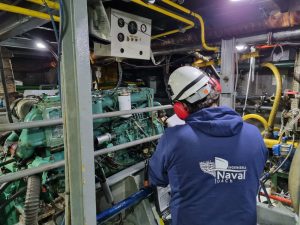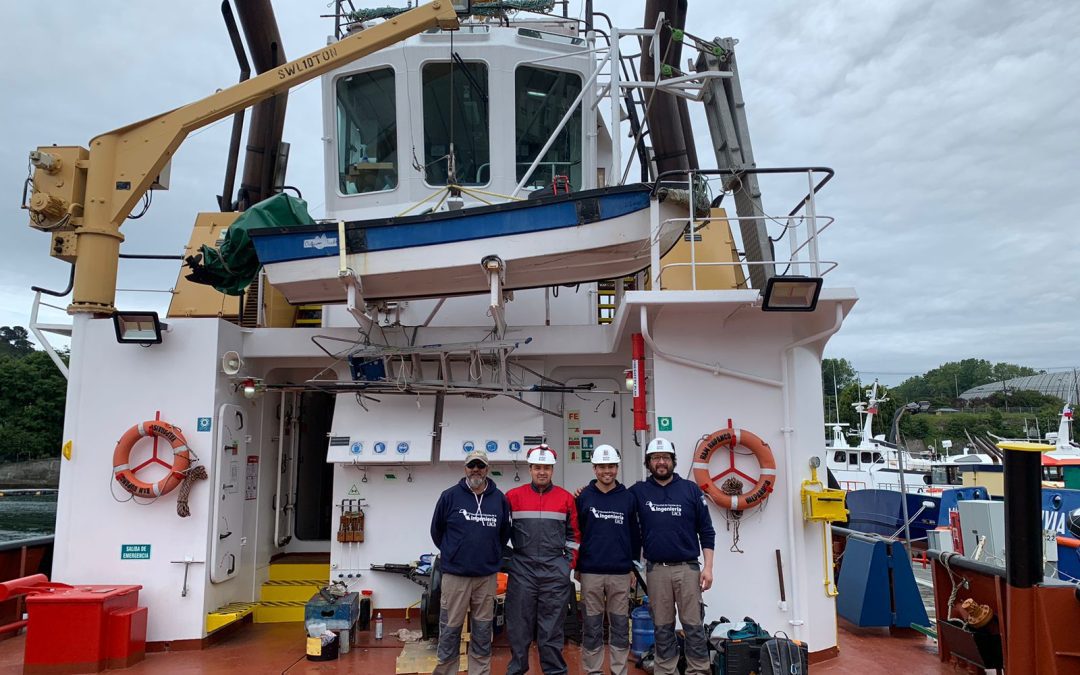Leer en español aquí.
A conversation with Joel Pérez Osses and Claudio Troncoso
Environmental sustainability is not a new concept – as the threats of global warming and climate change become more apparent with each passing year, humans are attempting to catch up and limit new damage. Enter new, flashy electric vehicles flooding the market (and bicycles becoming trendy again). One might assume that if they want an electric boat, they have to buy a brand-new vessel. While this is certainly an option, organizations like THEMS in Chile are making it possible to affordably convert an existing vessel into an environmentally-friendly one. We spoke with Joel Pérez Osses, the director of the project, as well as Claudio Troncoso, the naval architect.
Joel is a lecturer and researcher in marine sciences at the University of Austral de Chile. His background in marine engineering focused on efficiency of propulsion systems for any kind of vessel. “ I’m a researcher, and because of that, I’m in charge of some projects about energy efficiency – most of them are related to shipping electrification and the use of alternative fuel to stop using fossil fuels.”
Concerning the THEMS project, Joel says, “The end goal is to take existing vessels with conventional propulsion systems and convert them. It is difficult for the shipowner to get a new vessel, so we are providing them with an affordable option to make their system more hybrid, not necessarily go 100% electric with a massive investment.”
Claudio, the only naval architect on the project, was the one who suggested they turn to HydroComp for this undertaking. “Long story short, when I was doing my undergraduate propulsion courses more than 20 years ago, one of my professors was working on propeller estimations and using NavCad. Back in the 90s, access to the internet was more restricted. I would think about how I’d like to get my hands on NavCad eventually,” Claudio reflects. “Now that I am working on retrofit projects, I finally had the chance to prove how valuable it is.”
What made NavCad a good fit for Claudio and this project? “Reliability and experience,” remarked Claudio. Going back to his college years, “We were taught about propeller theory from experienced professors so when it was time to catch up with software, NavCad was the natural selection for them to continue teaching us. We continue learning about propellers with a solid theory based on manual estimations, plus with the use of NavCad.”
Claudio appreciates how much they can count on NavCad. “Because of its reliability and experience, we can corroborate the results and pass that information to our partners for a more robust decision-making process of moving from a conventional to a hybrid or electric propulsion system,” he explains. It improves the quality of their conversion process.
While the official THEMS project finished last May, the outcome of the project is continuous. “It will be over when we decide it to be over,” states Joel. “Right now, we are really looking forward to the outcome. We are currently retrofitting our first vessel and after that, we want to keep going until we convert as many as possible.” According to Claudio, that includes the Chilean small vessel fleet.

For the THEMS team, this is not a corporate goal, but an environmental mission. “From the first meeting with HydroComp, I had a really nice feeling that you understood that we are not looking at this as a business – more as a way to support ship owners,” Joel declares. “For example, we met with someone who decided to go with a major company who does electrification instead, and we said, ‘You don’t have to choose us. You have to go electric so whatever you choose, we are happy that you are going that route.’”
THEMS is providing an invaluable service through the Univ of Austral (UACh) to help mariners evaluate their propulsion systems by improving propeller efficiencies and highlighting sustainability. The R&D they provide using HydroComp’s NavCad software evaluates the status of the current propellers and offers recommendations for retrofitting to hybrid or electric propulsion. Joel and Claudio recognize they are competing against fossil fuels, but they are tackling this mission one ship at a time. Their mission is to be a resource for shipowners and to bring about industry change to make an eco-friendly difference.
For more information about the THEMS project: thems.cl/
More about the collaboration: thems.cl/thems-y-hydrocomp
To learn more about HydroComp’s NavCad software: hydrocompinc.com/solutions/navcad/
Download this interview here.
For more information, contact:
|
HydroComp, Inc. Tel +1.603.868.3344 danielle.doonan@hydrocompinc.com www.hydrocompinc.com |

